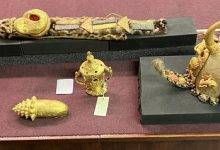
Sexual corruption among women in Ghana hits 2.6 per cent and 1.1 per cent in men for the year 2021.
Revealing this in the 2021 Ghana Integrity of Public Service Survey (GIPSS) – People’s Experiences and Views on Corruption Report, exchange for sexual favours or acts of a sexual nature in place of monetary bribes, disproportionately affected most women in Ghana.
“In 2021, 2.6 per cent of women in Ghana were asked for sexual favours while interacting with public officials, women are roughly twice as likely as men to be asked for sexual favours when interacting with public officials,” it said.
Also, one third (34.1 per cent) of all men who had contact with a public official either paid a bribe or was asked to do so, but refused while this was the case of one fifth of women (20.7 per cent).
The report again indicated that the frequency at which bribes were paid was another important dimension of public sector corruption as bribe-payers paid at least five times of bribes resulting in an average of 0.98.
“More than eight out of 10 adults in Ghana had at least one contact with a public official, some 64.8 per cent interacted with those public officials more than once and this showed that interactions between the public and those who are employed in Ghana’s public institutions were widespread and well-established,” it read.
Further explaining that more than 17.4 million bribes were paid in Ghana that year, showing the magnitude of administrative corruption in the country.
Whereas male public officials were more likely to solicit or take bribes from men than from women, making 61.2 per cent, female public officials on the other hand were just as likely to solicit or take bribe from men as from women.
The report showed that sexual corruption was high amongst females than any other type of bribe, as the share of male public officials who solicited or took a bribe from females was less compared to that of males.
The report survey was presented by the Commission for Human Rights and Administrative Justice (CHRAJ), in collaboration with the Ghana Statistical Service (GSS) and the United Nations Office on Drugs and Crime (UNODC).
BY ANITA ANKRAH







